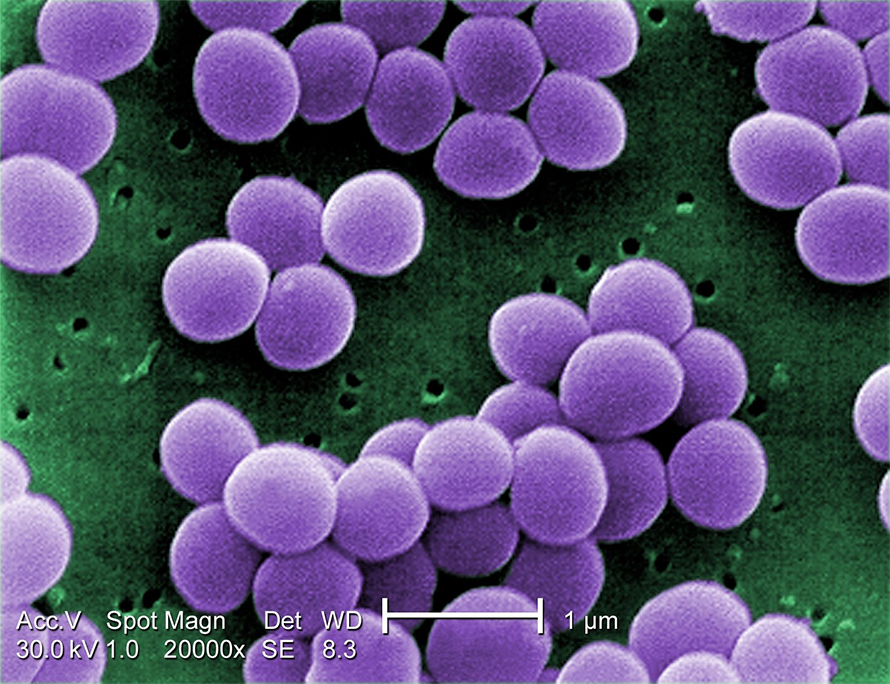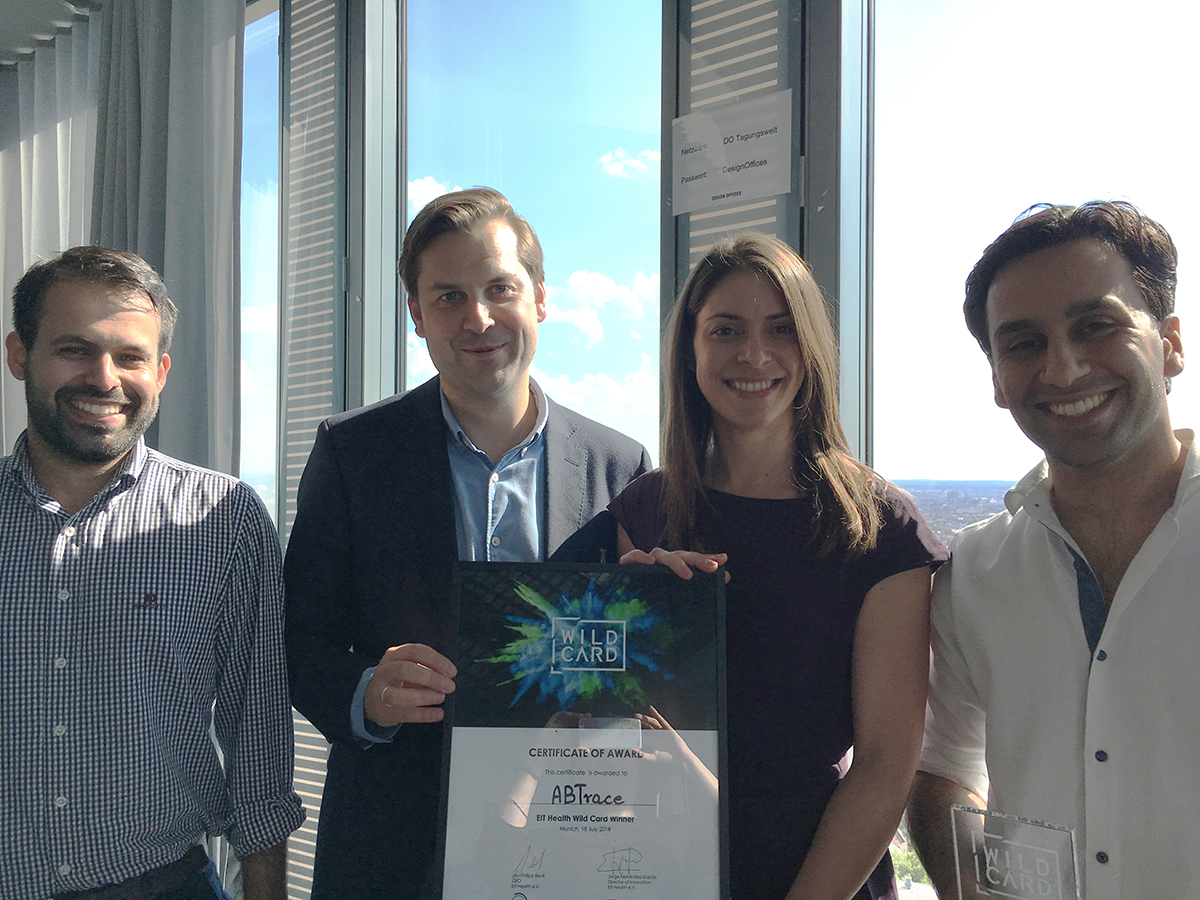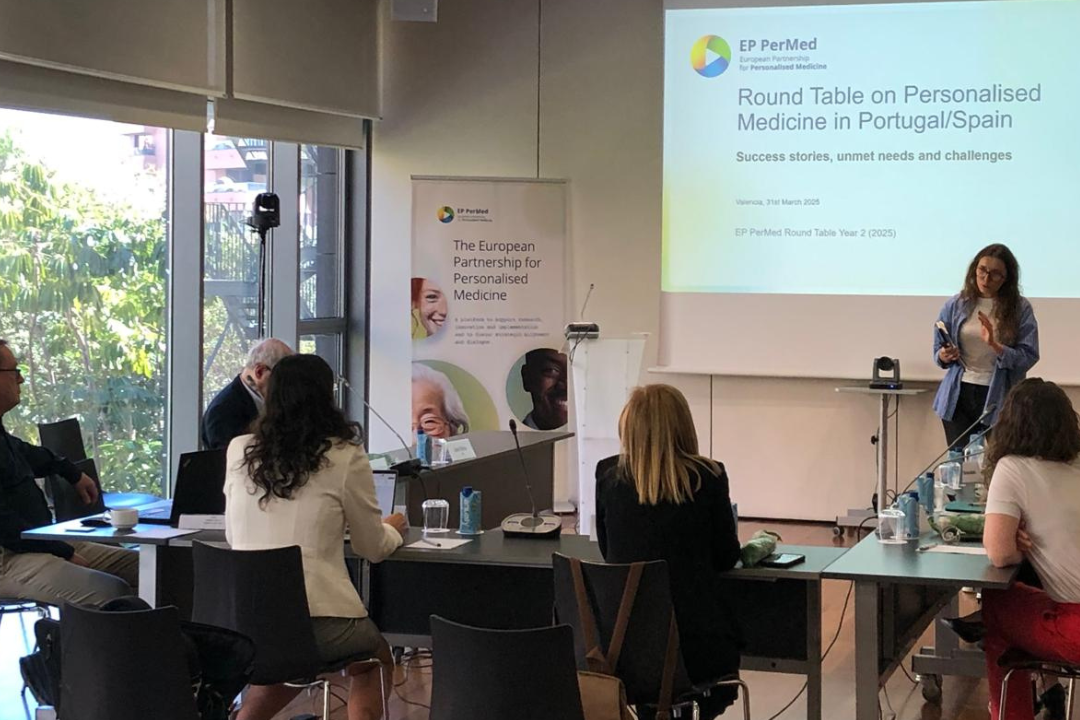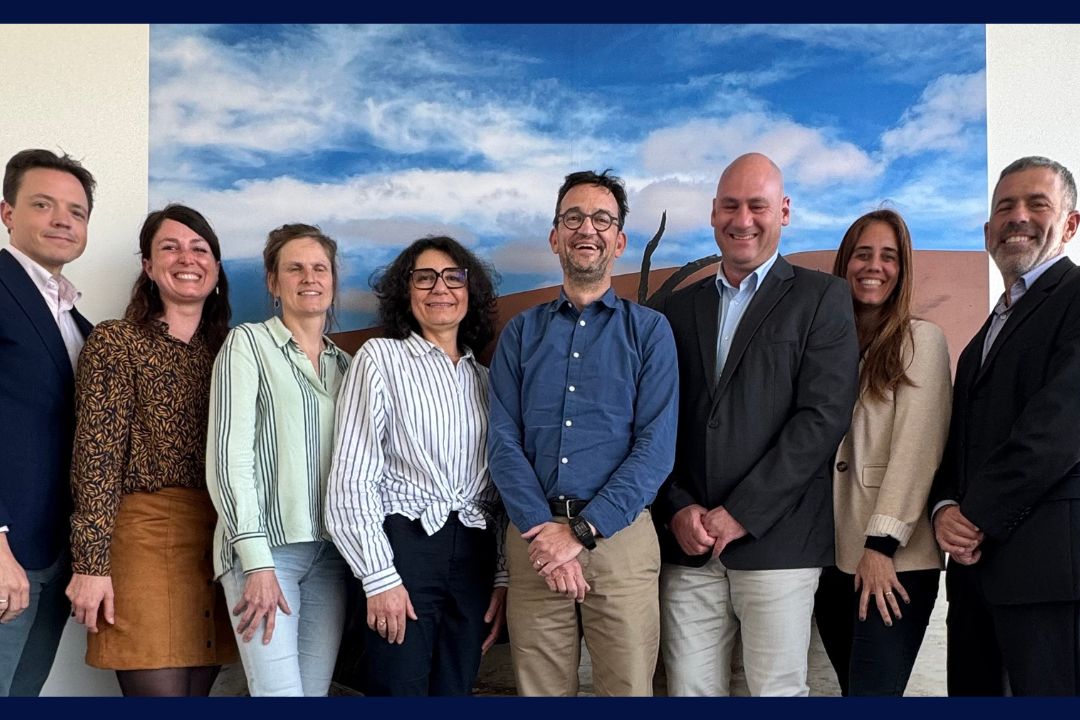20th August 2018
‘Microbes are pretty clever and have evolved to defend themselves against many of our most effective antimicrobials’.
Abtrace, a team that seeks to slow the development of “superbugs” by ensuring that antibiotics are used with optimum efficiency, was named on 23 November 2018 as one of two groups to receive support in the first EIT Health Wild Card programme.
In an interview with EIT Health, the members of the Abtrace team discussed their innovation, and the importance of the challenge they are addressing.
Abtrace will use artificial intelligence techniques to provide doctors with information that will help them pick the correct antibiotic, instantly, for every patient and every prescription. This improves treatment for the patient and reduces unneeded financial costs of consuming the wrong antibiotics. On top of these positive outcomes, the innovation also promises to benefit society by addressing the problem of antimicrobial resistance, in which bacteria develop immunities to antibiotics.

“Right drug for the right bug”
Scientists have recognised that a major cause of mutant, drug-resistant bacteria is the overuse, and misuse, of antibiotics. With artificial intelligence that assists in decision making, Abtrace will ensure that doctors are “selecting the right drug for the right bug” and giving the correct dosage in every individual case they treat – thereby helping prevent the development of deadly superbugs.

The Abtrace team consists of Helder Soares (at left in photo) Dr. Cristina Correia (second from right) and Dr. Umar Naeem Ahmad (right), pictured here with EIT Health CEO Jan-Philipp Beck (second left). The team was formed during the 2018 Wild Card competition. On 9 November 2018, DX-Labrack was named the first winner of Wild Card support. On 23 November, Abtrace was named the only other team that will win support in the 2018 Wild Card contest. Abtrace will form a company and develop their innovation with EIT Health support.
Instituto Pedro Nunes, an EIT Health Associate Partner in Coimbra, Portugal, was chosen to provide lab space and other incubator support for Abtrace. In the following interview, members of the Abtrace team respond to questions about their work and the Wild Card contest.
Q: Do you think researchers can solve the threat of antimicrobial resistance? Who’s winning now, medical science or microbes?
A: If this is a war, then it has been going on for millennia. During the last century, medical science made incredible progress in developing effective antimicrobials and increasing their access to populations across the globe. That mission is not yet complete as there are still underserved populations and neglected diseases. At the same time, the microbes are pretty clever and have evolved to defend themselves against many of our most effective antimicrobials.
There has been a degree of complacency and according to the WHO, antimicrobials are the most commonly misused medications. At present, modelling suggests that antimicrobial resistance might be responsible for 10 million deaths a year by 2050. This is more people than die from cancer at present around the globe. We need to use antibiotics rationally if we are to preserve them for future generations.
In this sense, this AMR could be compared to climate change. We know what needs to be done on a higher level but changing behavior is a big challenge we are only just beginning to understand. We do not know how much time we will have. It is hard to know when we might hit a tipping point.
Q: Why did you chose to take up the Wild Card “Fight Back” challenge to address antimicrobial resistance? Were you or members of your team already interested in that area of work?
A: We have seen the human cost of drug resistant organisms in both our working and personal lives. It truly is one of the gravest dangers facing humanity. The Wild Card competition is a unique opportunity to empower motivated individuals to create out of the box entrepreneurial solutions. We come from a variety of backgrounds – Umar is a frontline clinician, Helder is a medicinal chemist developing novel compounds and Cristina is a biomedical engineer working on the interface of research and industry.
Each brings a different perspective and experience with a shared passion for the topic. We found in this particular competition the opportunity to explore high risk ideas, going beyond incremental solutions and searching for game changers in the battle against this major common threat.
Q: What can you say about the project you are working on for the Wild Cards programme?
A: We can share a vision of a future where all antibiotic usage is analysed, tracked and tailored with clinicians empowered with the benefit of collective medical experience to make the correct treatment decisions for patients. It is an ambitious plan, but we feel the technology and motivation now exists to work towards this future in the next few years. Our project called Abtrace will create the first implementations of such a system but has a wider transformative potential for the way medicine is practiced and understood.
Q: Do you see a clear path to turning your ideas into something marketable?
A: We can certainly see a market and view the Wild Card project as the first step to allow us to get started. In our interviews and research, we hear a strong motivation from patients, clinicians and decision makers within the healthcare system to deal with this problem which is projected cost in the order of $1 trillion every year to the global economy by 2050.
Certainly, we can see barriers in the path to market but in addition to the support of EIT Health, we think there is a positive environment and growing momentum which makes this the right time to tackle this problem head on. We are confident we can deliver a solution which has both a viable business case and health impact.
Q: Can you say something about the talents and specialities of your team? When and how did you meet? Why do you feel your team works well together?
A: We met during the first stages of the Wild Card competition in April 2018. We were surprised to find that the three of us brought very similar solutions to the table and it made sense to combine efforts. We are all very driven individuals that have consistently thought outside the box in our careers so far.
Our personalities probably complement each other with a good mix of idealistic vs pragmatic, scientific vs clinical and academic vs commercial approaches. The most important ingredient for our success so far is that we really enjoy working together. We have already had many long hardworking days with no doubt much more to come and we have always come out laughing.
Q: What attracted you to the Wild Card programme to begin with?
A: This really is a unique programme not only in Europe but around the world. The process is tough and thorough but, in the end, the programme gives you the freedom to really challenge the boundaries of what is considered possible today. The funding and the mentoring will give the successful teams the launchpad and the rocket fuel for a real moonshot. It’s an exciting opportunity that brought together an extraordinary team of mentors who are brilliant, very experienced and really enthusiastic.
Q: Do you think the Wild Card approach is a good way to help get useful healthcare innovation into the market?
A: I guess we will find out! This is the first year the competition is being run so we certainly hope to show that it is. The competition explicitly aimed to bring together the best talents from across Europe, to support potentially transformative high-risk innovation, testing the ideas (and us!) to the limit to ensure our solutions are robust enough to survive the harsh of environment of the market.
The funding allows us to expand our team and accelerate our next steps while, we hope the technical and business support on offer will make any innovation that goes through the process much more likely to succeed.
EIT Health launches seven new members to its community

Enriching the EIT Health network with their collective expertise.
Driving personalised medicine forward

The second EP PerMed Round Table convened in Valencia and online.
EIT Health’s Open Innovation programme brings together NimBio, Takeda Belgium, KU Leuven to pilot IBD flare detection

Transforming unmet clinical needs into scalable solutions.